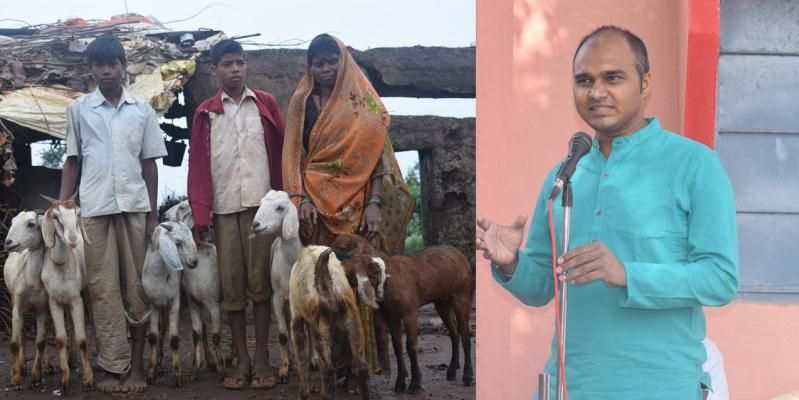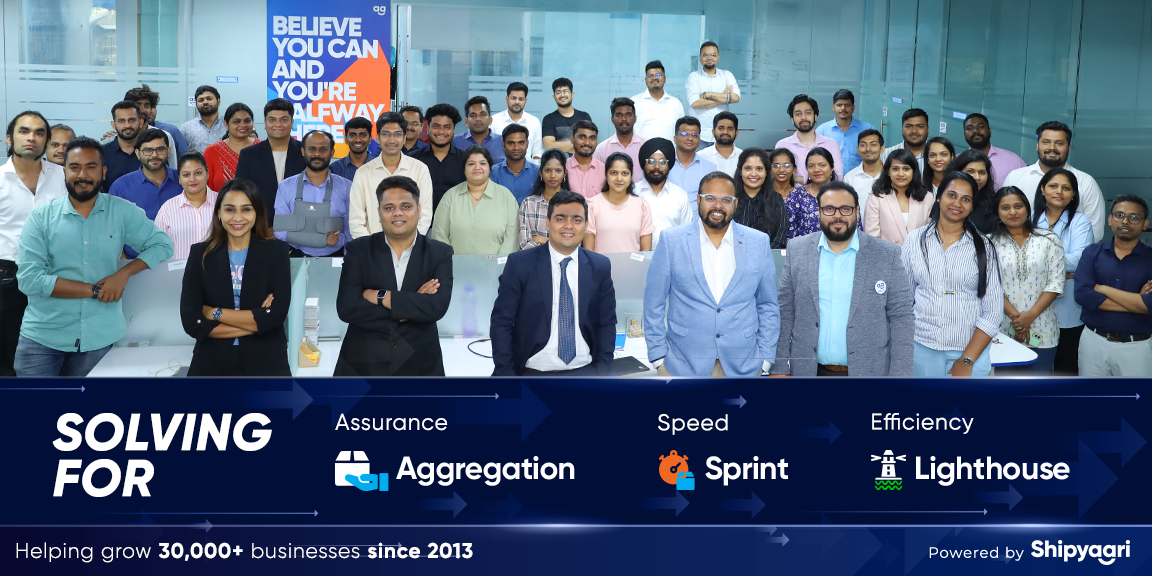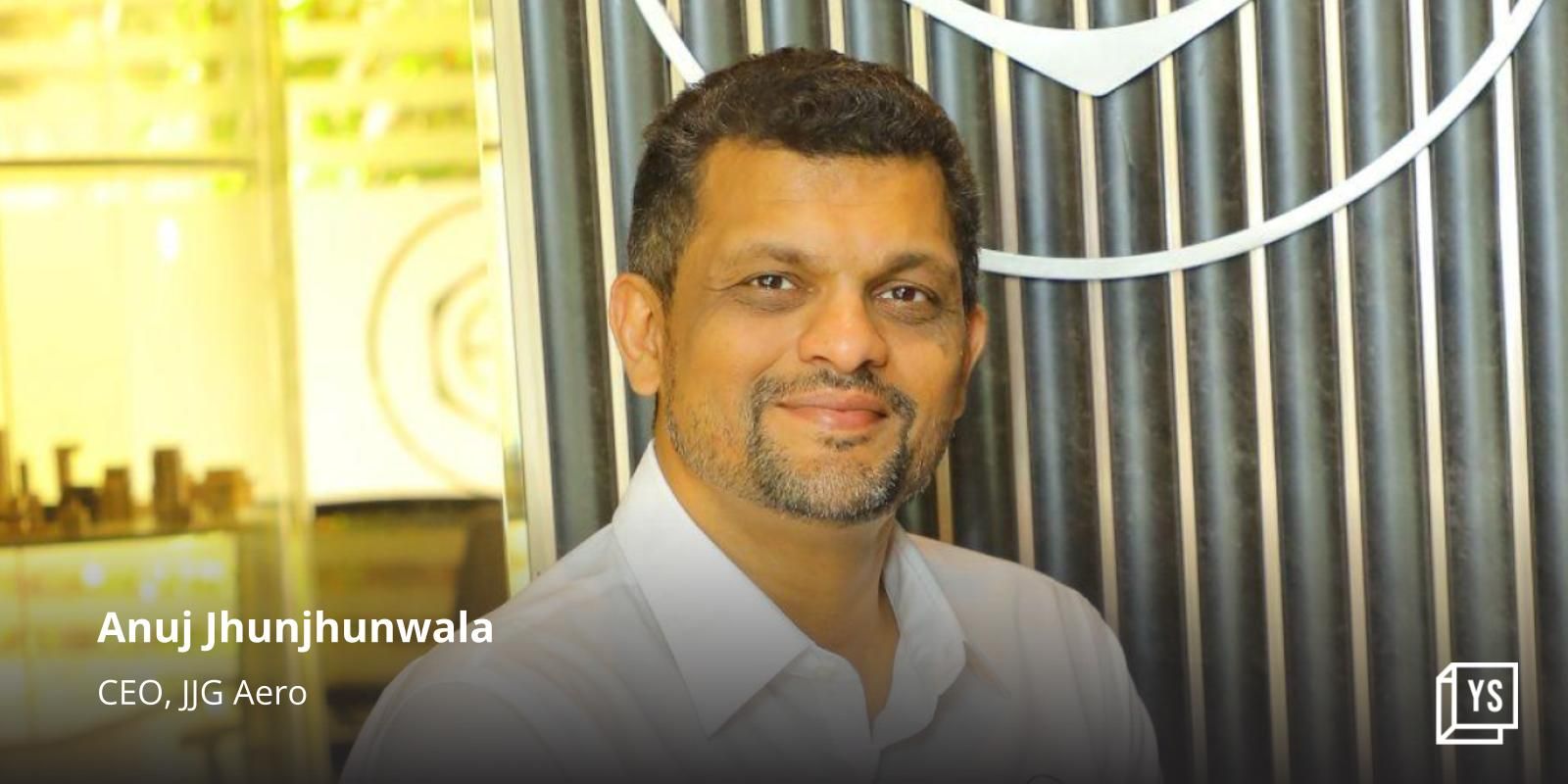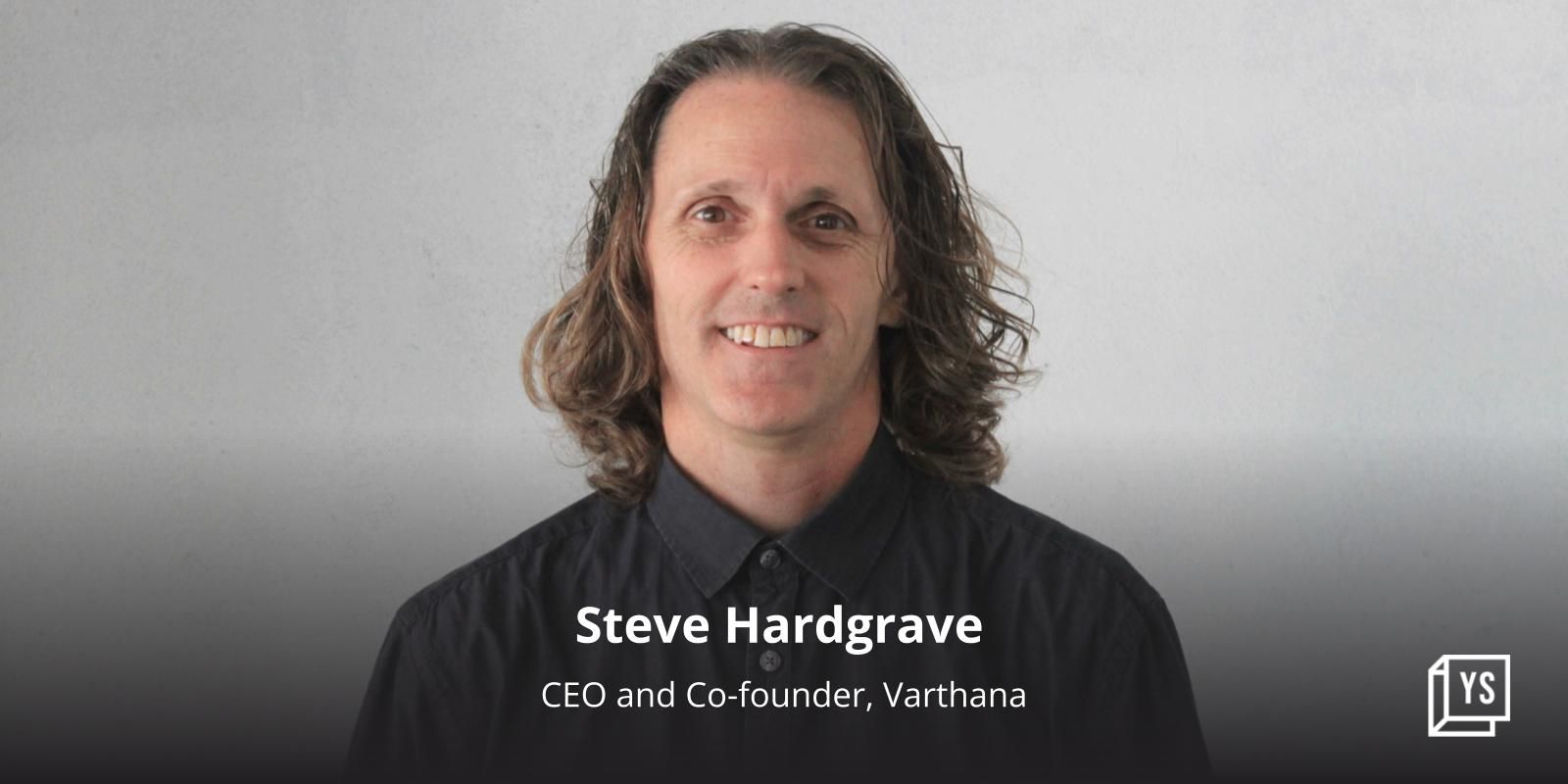Using goats to fight poverty in tribal Maharashtra, how a researcher's PhD transformed into a social enterprise
Dr Nilratan Shende’s social enterprise EAGL aims to build a hunger-free India by promoting agriculture-based livelihood initiatives in tribal areas of Maharashtra.
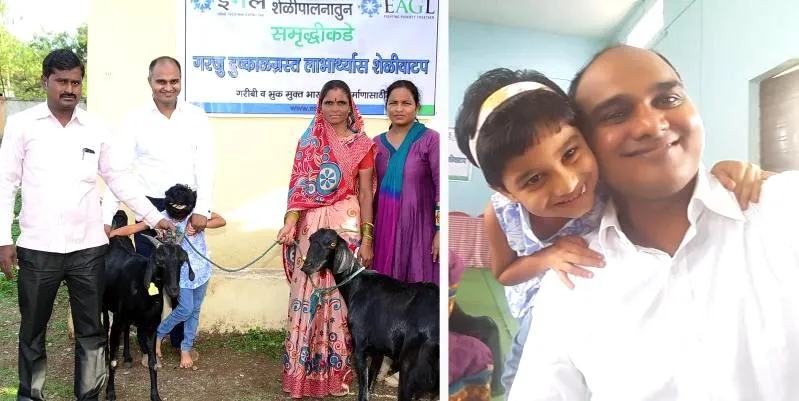
Nilratan Shende’s childhood experiences left a deep impact on his mind and shaped his personality as he grew up.
Dr Nilratan, 38, now Chairman and Managing Director of Eshein Agro Livestock Private Limited (EAGL), hails from Pauni, situated in Maharashtra's Bhandara district.
The social realities surrounding Nilratan were grim. While growing up, he witnessed abject poverty, social discrimination, alcoholism and domestic abuse around him.
His father, a progressive railway man, encouraged Nilratan and his siblings to go for higher education.
“As a result, my sister completed her PhD and my brother did his MPhil in Planning and Development from IITB,” he says.
Spending his childhood in a small town in Vidarbha region, which has today become the hotbed of farmer suicides, was probably the reason Nilratan chose to revisit rural Maharashtra years later for his PhD research.
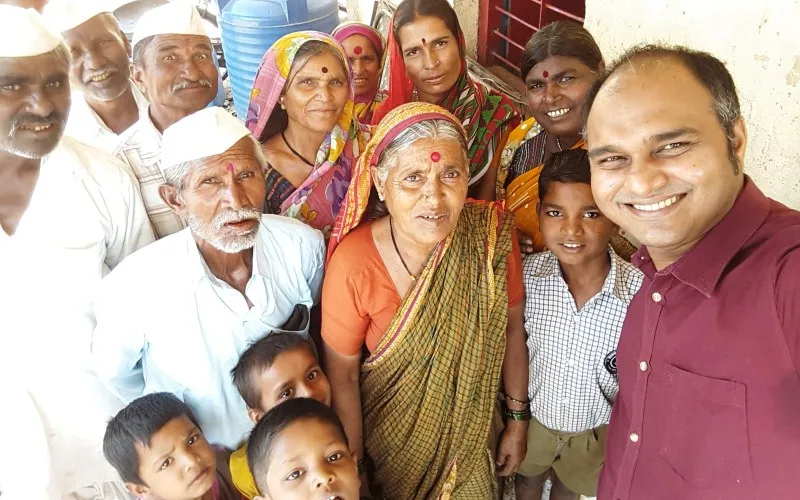
A research that went overboard
Nilratan completed his master’s degree in social work at Tata Institute of Social Sciences (TISS), Mumbai. He then pursued a PhD from IIT Bombay, researching on “Poverty, Food Insecurity and Coping Mechanism among Tribes in Maharashtra”.
During his research, he had the opportunity to explore the lives of tribal villagers living in Maharashtra’s Melghat region. Nestled in the dense forests along River Tapti, Melghat is home to many tribal villages, belonging mainly to the Korku community. Observing their lives closely helped Nilratan develop a deeper understanding of the social, economic and political dynamics at play in the region.

“I was deeply touched by the tribals’ dependency on the forest, their agricultural crop patterns and how they are economically exploited. Structural reasons perpetuate poverty. Changes in the forest policies have reduced access of the tribals to forest resources, further marking a departure from the tribals’ subsistence economy.”
Nilratan’s research proved that livestock management can become an alternate source of livelihood for tribal households.
“Poverty can be addressed. All we need to ensure is availability of food, access to food, and purchasing power,” he says.
The rural economy, run mostly by local moneylenders, lacks formal credit linkages.
“These moneylenders often charge an annual interest rate of 150 to 200 percent. It becomes impossible to increase the tribals’ purchasing power unless an alternate source of livelihood is provided. Livestock fills this gap,” Nilratan says.
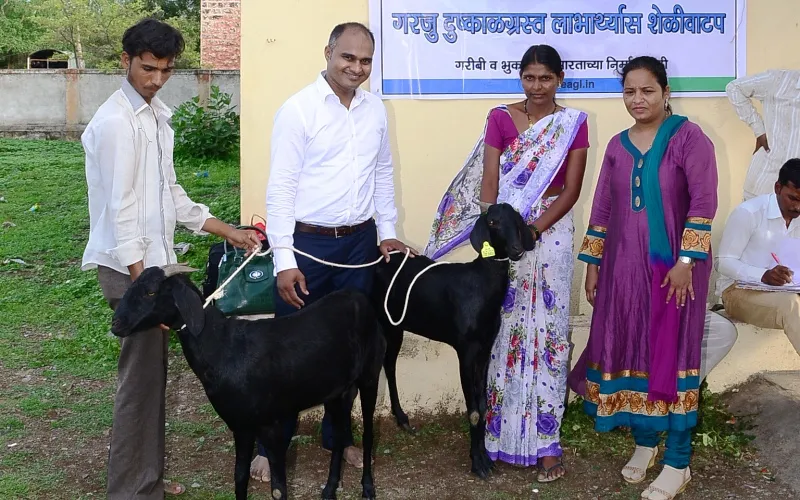
He went on to present his findings at conferences in the US, Hong Kong and Japan. But the real validation of his findings lay in their implementation.
“I did not want to conclude just by critiquing. It was important to create sustainable models and demonstrate that tribals have hopes and aspirations,” he asserts.
Taking the findings of his research, Nilratan started EAGL, a social enterprise that uses livestock management to enable tribal families break free from the perpetual cycle of poverty.
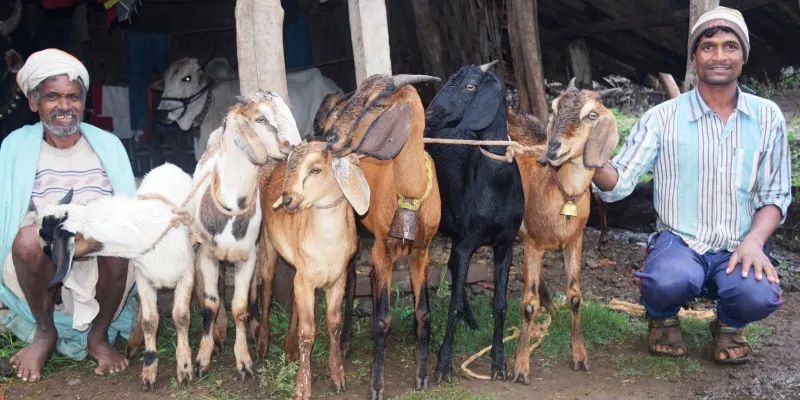
The journey so far
“I still remember that to support the first set of five families, my wife had availed a gold loan,” Nilratan recalls. That was 2012.
Since then, EAGL has consistently grown and has worked in 19 villages across four districts of Maharashtra, helping nearly 200 families emerge from the shackles of poverty.
“We also managed to extend our project in the drought-hit area of Osmanabad district, Maharashtra, and some peripheral villages in Madhya Pradesh,” he says.
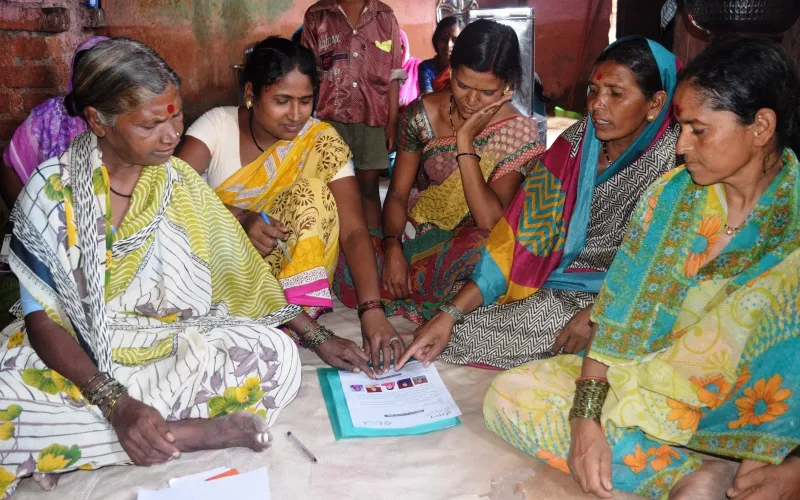
EAGL aims to build a poverty and hunger-free India by promoting agriculture-based livelihood initiatives. The eight-member team’s main purpose is to economically empower people at the base of the pyramid.
Speaking about their approach, Nilratan shares how different challenges and opportunities have helped them shape sustainable models for managing livestock.
“Once we have identified the geographical area and families we plan to work with, we help build their capacity of social entrepreneurship. Once the goats are handed over, we monitor them closely and provide them with essential training. Our team works on a risk mitigation plan with different stakeholders and provides marketing linkages to ensure sustainable income for these families,” he says.
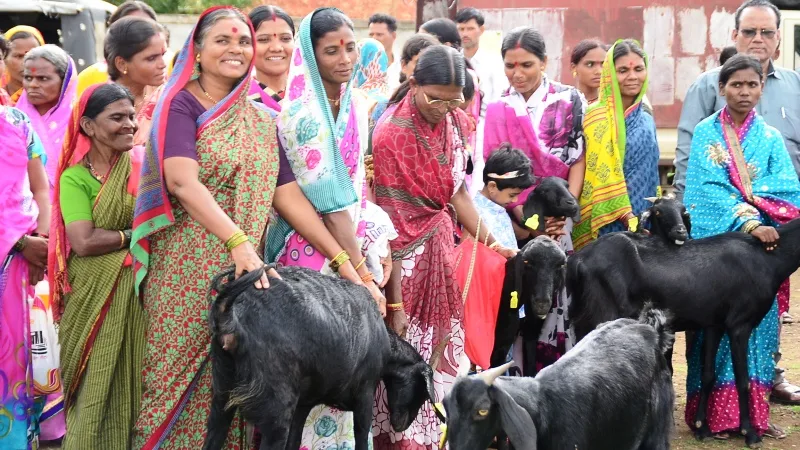
Bhuni Dhurve, a landless tribal living in Toranwadi village in Melghat, until recently supported his family of five members by working as casual labour in and around the village. His family would sell forest produce to the local moneylender.
“Moneylenders are like bedbugs who suck our blood,” Bhuni says, recalling his days of food insecurity.
Things have changed drastically since EAGL intervened with livestock support. Bhuni was provided with a pair of goats and - with some handholding - the number of his goats increased to 13. Bhuni has even sold some of his goats to purchase a buffalo, which has helped his family diversify its sources of income.
“We have managed to prevent days of kal (food insecurity). We can save money as we have regular income through milk and goats,” he says.
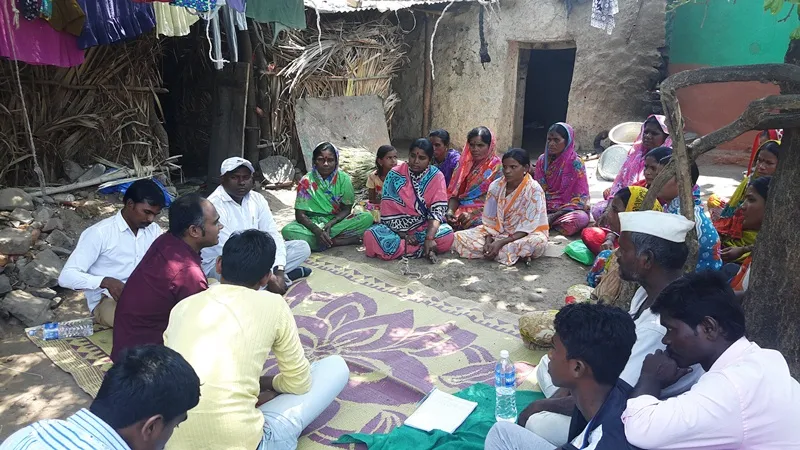
Looking towards the future
Nilratan and EAGL have plenty of plans to ensure a brighter future for tribals.
“We are working on an ambitious project for alleviation of poverty of 3,000 families in Raigad district of Maharashtra by promotion of agricultural-based enterprise,” Nilratan shares.
Although EAGL began with livestock-based intervention models, the organisation has identified a more holistic and integrated poverty alleviation approach. Nilratan says,
“We would soon be working on vegetable cultivation, floriculture, fisheries, poultry, dairy, environment along with goat rearing to build enterprise at the grassroots and help them become self-sustainable.”
Enter the SocialStory Photography contest and show us how people are changing the world! Win prize money worth Rs 1 lakh and more. Click here for details!






